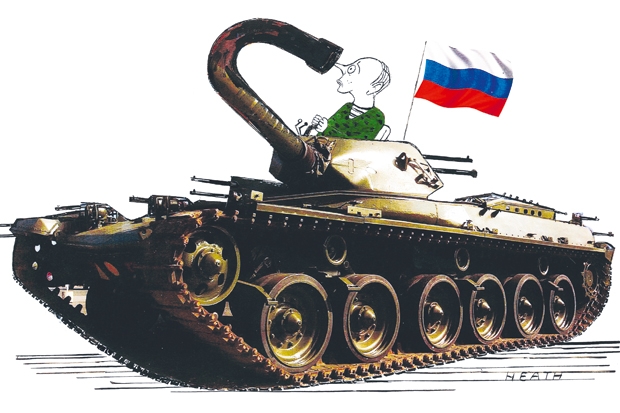It is tempting to view Vladimir Putin as a Cold War relic: a former KGB officer who hasn’t got over the fall of the Soviet Union, which he called the ‘greatest geopolitical catastrophe of the century.’ But, as I say in the Times today, what is happening on Ukraine’s border isn’t a throwback to the Cold War. Rather, it is a preview of Europe’s future.
Since Nato’s creation, European security has rested on America’s involvement. But Europe is now a secondary concern for the US; Asia and competition with China is the most important challenge facing Washington now. The horribly messy US withdrawal from Afghanistan was justified on the basis that it would free up resources to focus on China.
Putin has decided to see how this logic applies to Europe. Russia’s president has not ignored the Ukrainian provocation, sending some 3,000 more troops to eastern Europe and lethal aid to Kyiv. Washington is involved in intensive efforts to draw up a sanctions package designed to deter Moscow from attacking. But America’s interest in European affairs is only going to wane, relative to its interest in Asia.
Biden is by age and temperament an Atlanticist: the next president may well not be. It could be a Trump-style figure, who views Nato with suspicion. Look at how Josh Hawley, the hyper-ambitious Republican senator, has criticised Biden’s decision to send more troops to eastern Europe to try to reassure Nato allies. A waste of resources, Hawley argues, and a distraction from the US effort to adjust its military to best deter China.
All this will force Europe to take more responsibility for European security. The precedents for this are not altogether encouraging. Leaving aside the centuries of warfare that dominated so much of European history, recent attempts to take the initiative have not gone well. In 1991, the Luxembourg foreign minister Jacques Poos declared that the break-up of Yugoslavia was ‘the hour of Europe, not the hour of the Americans’. What followed was horrendous warfare, genocide and, eventually, Nato intervention with the US taking the lead role.
European security will have to depend on managed stability and this requires credible deterrence. Russia needs to see that there will be both military and economic costs to actions that destabilise Europe. With America slowly walking away from Europe, this will require all regional powers to spend considerably more on defence. The peace dividend that came with the end of the Cold War is over.







Comments